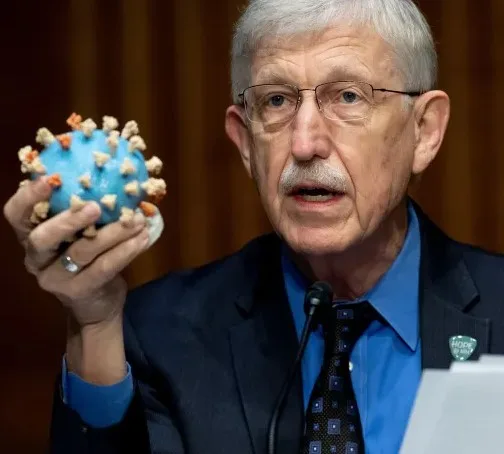Some government health officials now admit their Covid-19 policies had deadly consequences
By John Fund
The Covid-19 lockdowns that were imposed worldwide (with the exception of Sweden and a few other countries) ran contrary to the longtime conventional wisdom that the main responsibility of the public-health system in a pandemic is to  keep people calm and society functioning. Our public-health officials did the opposite. Intentionally. The hysteria they generated led to hundreds of thousands of non-Covid excess deaths, massive economic and social harms, and, worst of all, an unprecedented disaster in education.
keep people calm and society functioning. Our public-health officials did the opposite. Intentionally. The hysteria they generated led to hundreds of thousands of non-Covid excess deaths, massive economic and social harms, and, worst of all, an unprecedented disaster in education.
Francis Collins, who was the head of the National Institutes of Health during the pandemic and is now a science adviser to President Biden, recently made a remarkably frank confession:

Francis Collins, former director of the National Institutes of Health
“If you’re a public-health person and you’re trying to make a decision, you have this very narrow view of what the right decision is, and that is something that will save a life. It doesn’t matter what else happens. So you attach infinite value to stopping the disease and saving a life. You attach a zero value to whether this actually totally disrupts people’s lives, ruins the economy, and has many kids kept out of school in a way that they never quite recovered from. . . . This is a public-health mindset. And I think a lot of us involved in trying to make those recommendations had that mindset, and that was really unfortunate. It’s another mistake we made.”
Collins’s tardy mea culpa is welcome, and so too was the testimony last month of Britain’s prime minister, Rishi Sunak, during the country’s independent public inquiry into its Covid response.
So far, the inquiry has presented a highly flawed picture of how Britain was plunged into a lockdown that greatly influenced the American decision to follow suit. Inquiry leaders appear to want the record to show that lockdowns should have started earlier and been more severe.
But to his credit, Sunak didn’t follow that script in his testimony last month. During Covid, he headed Britain’s Treasury Department. He argued that Britain did a poor job of transparently discussing the costs and benefits as well as the fraying of the social fabric caused by the lockdowns: “Many of these impacts are not felt immediately. They are felt over time.”
He pointed to findings from Imperial College London and the University of Manchester that applied a Quality-Adjusted Life Year (QALY) analysis to the first lockdown. Sunak said these reports “suggested that the lockdown in its severity and duration was likely to have generated costs that are greater than the likely benefit.” The QALY analysis is a standard way of measuring the overall quality of life.
But the lead lawyer for the Covid inquiry, Hugo Keith, quickly dismissed Sunak by saying, “We’re not interested in QALYs.”
This despite the fact that respected QALY studies have suggested that lockdown harms in England were five times larger than the benefits.
Another cost of the lockdown was an increase in cynicism about government. Helen MacNamara, the second-most-senior British civil servant during the pandemic, told the inquiry panel last month that the lockdown protocols were rife with hypocrisy.
She said she would struggle to “pick one day” when the Covid regulations were followed properly inside No. 10 Downing Street. She also criticized an overreliance on the advice of scientists who urged compliance with the lockdowns; the politicians she worked for treated the scientists’ advice as “the word of God,” she said.
What the Covid inquiry has demonstrated is that the “expert science” relied on by leaders in Britain and the U.S. was often disastrously short-sighted. That’s why it should be a scandal that the Covid-policy postmortem in most countries is now mainly focused on burying government mistakes and avoiding accountability.
_________________
Credit: National Review





















